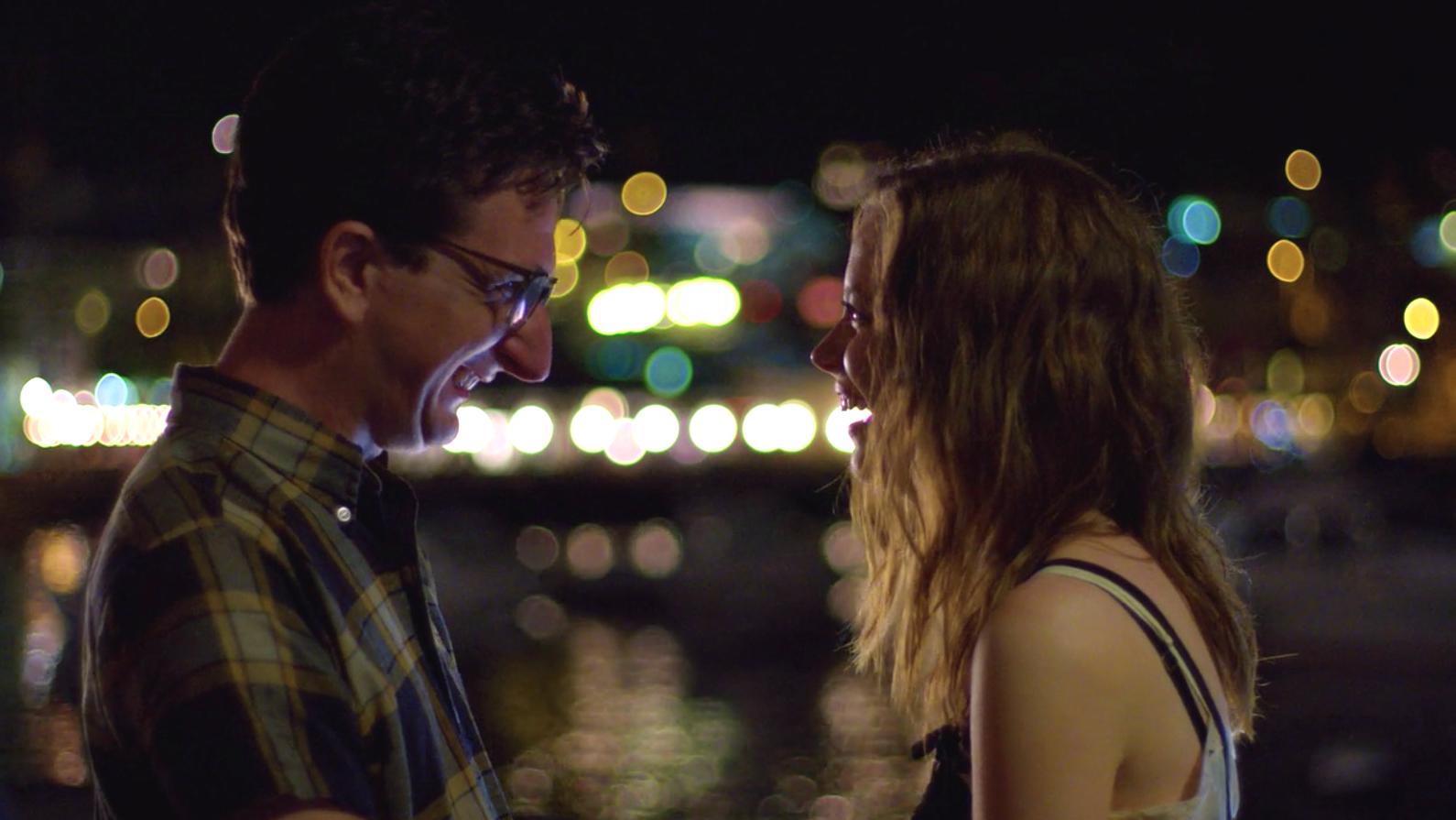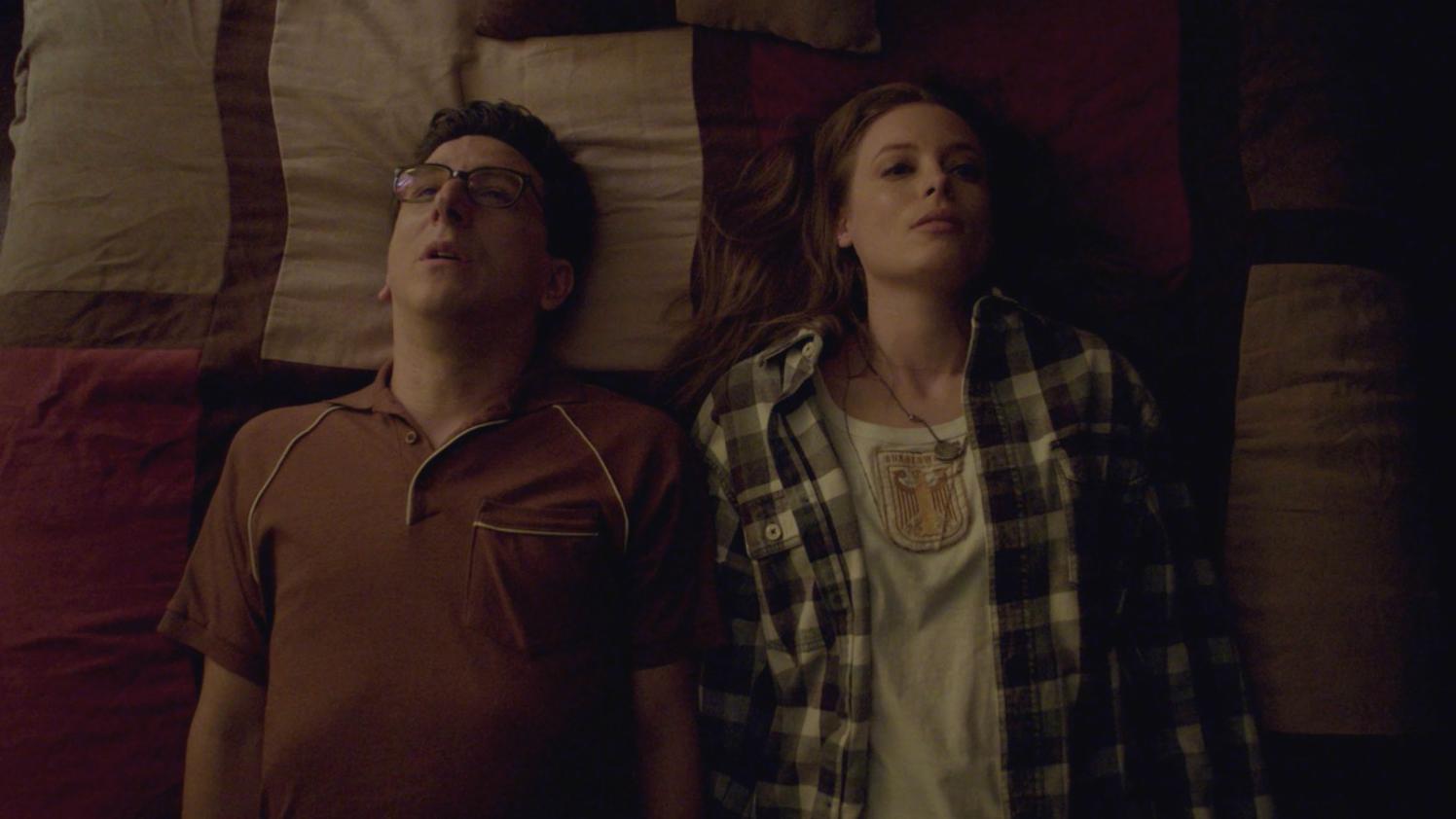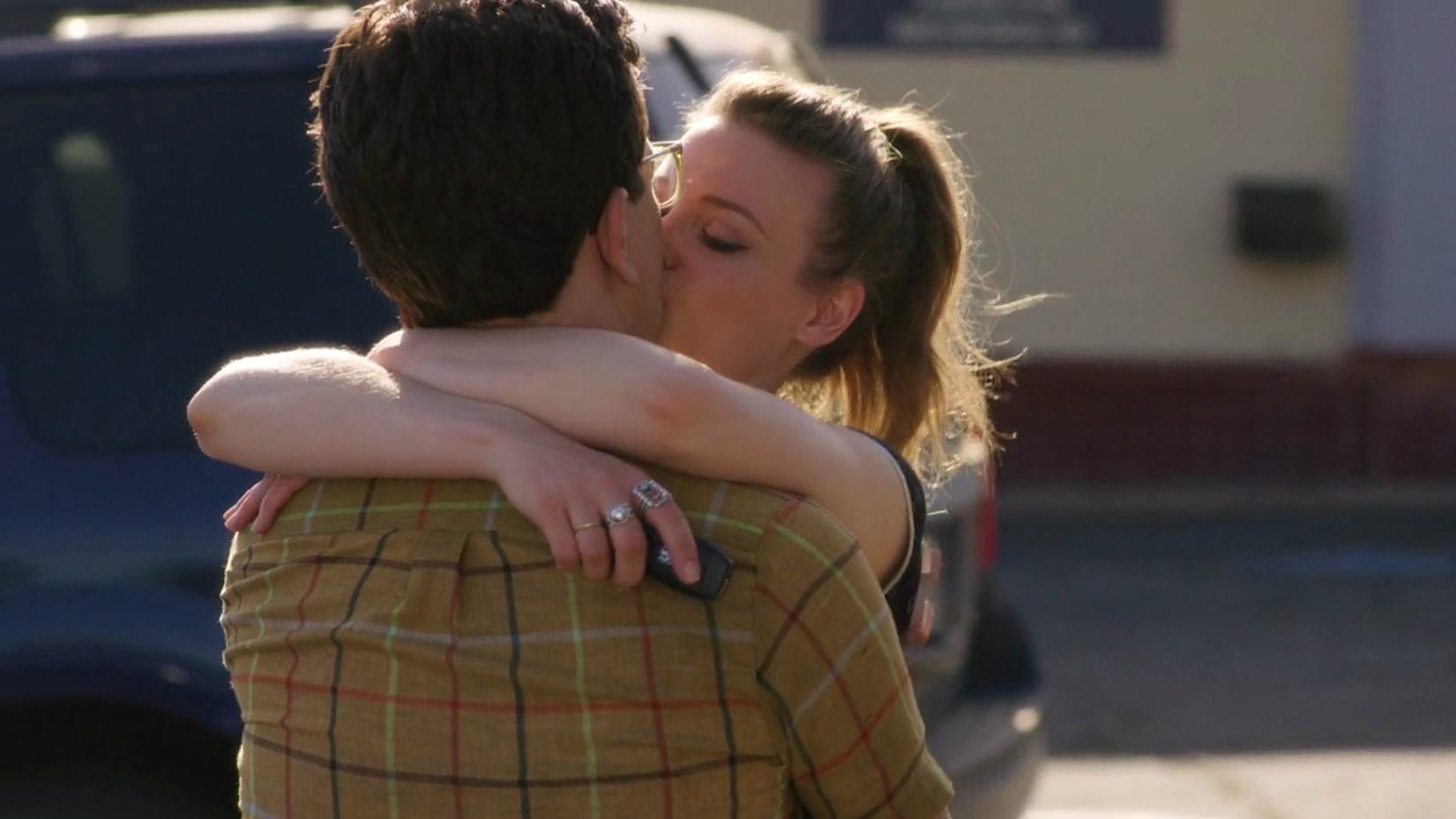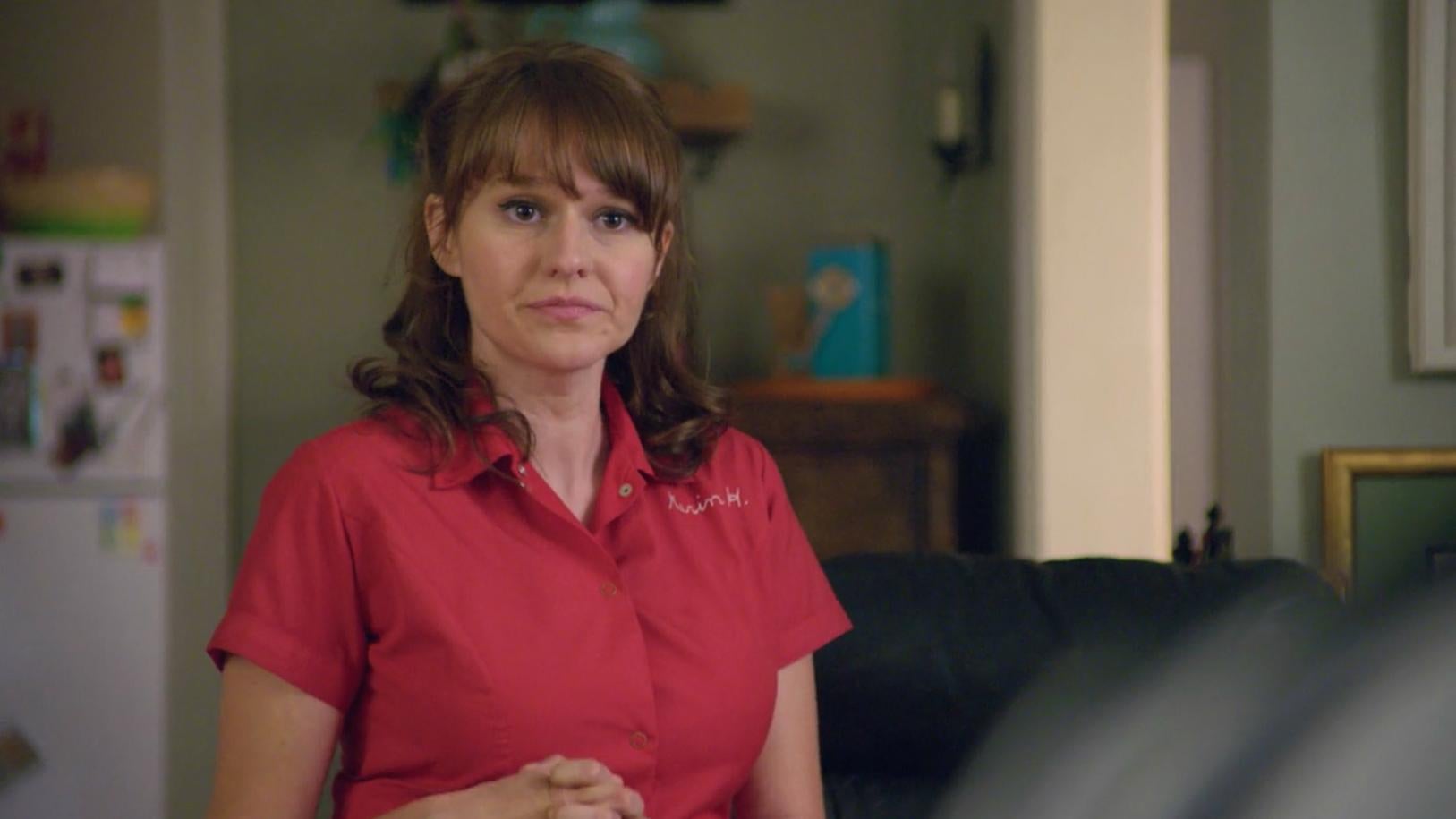Love season 3 finale: Judd Apatow breaks down that ending and talks Gus and Mickey's future
Love has been a quiet delight the past three years, an annual reminder that will-they-won’t-they narratives are a false binary and that for all the high drama moments of relationships, it’s often the smaller, papered-over ones that’ll quietly fuck you both up.
You'd be forgiven for not knowing as Netflix didn't offer much fanfare, but the third season that arrived earlier this month was actually the last. Mickey and Gus' story ended (spoilers ya hear) with the couple cementing their conviction to be together after some soul-searching and deciding to have a snap wedding, something which, depending on your outlook, was either beautiful or foolish in its impulsiveness.
I caught up with co-creator Judd Apatow to unpack the finale and look back at the show.
CH: Was the show still your baby by season 3, or had Lesley [Arfin] and Paul [Rust, co-creators] taken it over a little?
JA: It was always a collaboration all the way through. I was still deeply involved this season, I directed one of the episodes and wrote on I think three of them. The show was always such a joy to do, very easy to spend a lot of time on.
Sure. And how did it come to be three seasons? How many did you envisage the show having when you started it?
I think we always knew we wanted to show a relationship in slow motion and cover all the things that most people would skip over, so if the characters didn't talk for a while we'd wanna show what they were doing when they weren't, and we didn't really know if they would survive or not survive.
At the end of the second season Netflix was like, 'Probably a good time to end it would be after the third season,' [laughs] and so we came up with a season we thought would complete the circle for our story. You certainly could go back at any time and see where they're at and see how things went in the years that followed, but I think people appreciate it as a 34-episode mini-series with a thoughtful end, and so I was happy that we had the opportunity to look at it that way.

I wonder, because like you were saying it's about those slower moments in love - much like Easy [Joe Swanberg's Netflix show] - whether it suffered in terms of really catching on because, in a crowded marketplace, it's not promising high drama and 'never-before-seen' concepts. Maybe it's a harder sell?
Well I think that it's everything we wanted it to be but it's certainly not intended to grab you by the lapels and shock you in any way. It's meant to be very intimate and accurate and authentic and hopefully has heart and a lot of laughs, that's what we wanted, and I feel like we accomplished all of our goals. It's been really fun seeing the reaction to it because people have really loved what we did with it this final season, so it's bittersweet because people are always saying 'well why don't you do more', but part of the reason why they like it is 'coz it ended and has that arc.
Yeah. Like you said though, you could 100% always do like a Before Midnight-type thing with those characters at a later date.
Yeah, absolutely.
Diving into the finale, part of why Love was such an interesting show to me is because it was about how there's never really a happy or final ending when it comes to love, it's always a continuing story. Did that make it tricky to contrive an ending?
I think you could know someone for 10 years or three days before getting married and your odds are pretty similar.
I think a lot of the show is about people with two different sets of problems. At first Mickey's problems seem like the bigger ones - she has issues with drug addiction and sex addiction and seems to be self-destructive and without a vision for herself and her future, and then you have this guy Gus who seems nice and you think, 'Oh he's the good one dealing with the crazy one'. Then, as the series progresses, you realise they're both equally damaged. We've always been fascinated by the people-pleasing guy who hides how fucked up he is, and when you're in a relationship with someone like that - and I'm like that - it slowly reveals itself, that they're codependent or that their people-pleasing leads to rage. And as you watched this season you realised that she was facing her problems with a little more courage than he was and that he needed a few tough moments in order to make some changes as well.
I think it's quite telling that most girls I know think Gus is a dick and most guys I know think Mickey's a dick. I suppose we tend to project our own past relationship experience and it digs in old wounds.
Well, you always find someone on your level, whether you realise it or not. There was this therapist I used to see on Oprah named Harville Hendrix and he always said that in a relationship all of your stuff comes to the surface and you either think 'that's a good thing and now we can solve our problems' or the other person brings up everything that's wrong with you and you hate them. This really was a show about the stuff that comes up when you fall in love and how these people try to heal themselves and make this relationship work, even after finding out that the other person isn't perfect.

When you came to think about and write the ending, was everything on the table in terms of what could happen?
I think we kicked it around during the season and we debated whether or not they would go through with it or bail in some way -
So you always had the idea of the wedding in place?
Yeah, we liked the idea that they were impulsive people and it made sense that they would do something like this, and as an audience it's a little bit like The Sopranos ending where you're not sure what happens next. I'm sure some people will think well that's the beginning of a relationship and they'll be married and they'll continue to deal with their issues and hopefully they'll have more joy than pain. Anybody can debate whether they think they're going to make it or not, but in that moment they felt deeply connected and thought let's just jump in and see how we do.
I feel like Bertie's skepticism to the whole idea was completely crucial to the finale working.
Yeah.
And as much as I root for Gus and Mickey I think I probably share her skepticism, do you?
I think we should be skeptical at the beginning of every marriage [laughs]. I mean, every time I'm at a wedding the way they say the vowels you would think they would never have a fight ever. And half of those people wind up having a divorce and it gets ugly. I think you could know someone for 10 years or three days before getting married and your odds are pretty similar most of the time. It really takes a lot of work and a lot of dealing with your problems head-on, as and when they come up, with some love and compassion. So, I'm hopeful for them.

Yeah, I can't imagine it's going to be smooth sailing for them forever but maybe that's okay? We always tend to think about finales in terms of whether they'll 'make it' or not. Maybe they don't, but maybe that's not the end of the world and they have a good time together and ultimately feel it was all still worth it.
Yeah, I think no-one has completely smooth sailing and I believe they were smart enough to realise that if they're truthful and feel comfortable revealing themselves to each other they have a shot at long-term success. If they finally get to that place where they're not pretending to be a perfect version of themselves, and that's what we do when we start dating, we try to present our best selves and slowly the other person realises that that's not accurate, and then we discover the truth and we decide how we feel about it.
I guess that was my takeaway from it, don't try and be the version of yourself you think they expect or want. Have all your insecurities out there and then maybe you have a shot at it working.
Yes. It's like when people put up their photographs when they're on some dating website, no-one puts up a mediocre photograph, in the beginning of dating it's like all your best possible photographs.
Right.
Claudia [O'Doherty] I thought was amazing in season 3, her character [Bertie] really came into her own. She's got this way of delivering a line where it's somehow simultaneously sarcastic and sincere.
She is brilliantly funny and a great actress, I'm sure she's going to do amazing things in her career. We felt really lucky every day to be working with her. Someone showed me some of her videos that she has on the internet, these really hilarious sketches, and we used her in Trainwreck and fell in love with her and she's now one of my favourite funny people.

And what was the Love experience like as a dad, what with your daughter [Iris Apatow] being in the show. Did she take to and enjoy being a part of it?
She was really comfortable, she's a very good actress and enjoys the work. I had a great time directing her, I tried to write an episode that challenged her in every possible way, so in it she falls in love, she gets hurt, she has a breakdown, she murders somebody [in a show-within-the-show scene]. The whole episode was like a test of her acting prowess and we had a lot of fun doing it together.
Last off, and I guess this ties into the finale, when I saw you were making Love my first thought was 'shit, that's an ambitious title' [laughs] - like you've got to explore and ultimately address this huge, huge thing. What were you hoping to achieve? What was the goal?
I think we were just trying to accurately portray a relationship, people falling in love and what that is, and not try to make it perfect. Not trying really hard to make it fake and silly and comedic, we thought let's just show it for what it really is. It'll be funny in the way it's funny, it'll be sweet and sad in the way it's sweet and sad. It really is meant to be a warts and all treatment of two people finding each other and trying to figure out if they would make a good couple.
Well, I really enjoyed the show and got a lot from it, so thanks for making it and thanks for taking the time to look back on it with me today.
No problem, thank you so much.
Join our commenting forum
Join thought-provoking conversations, follow other Independent readers and see their replies
Comments
Bookmark popover
Removed from bookmarks